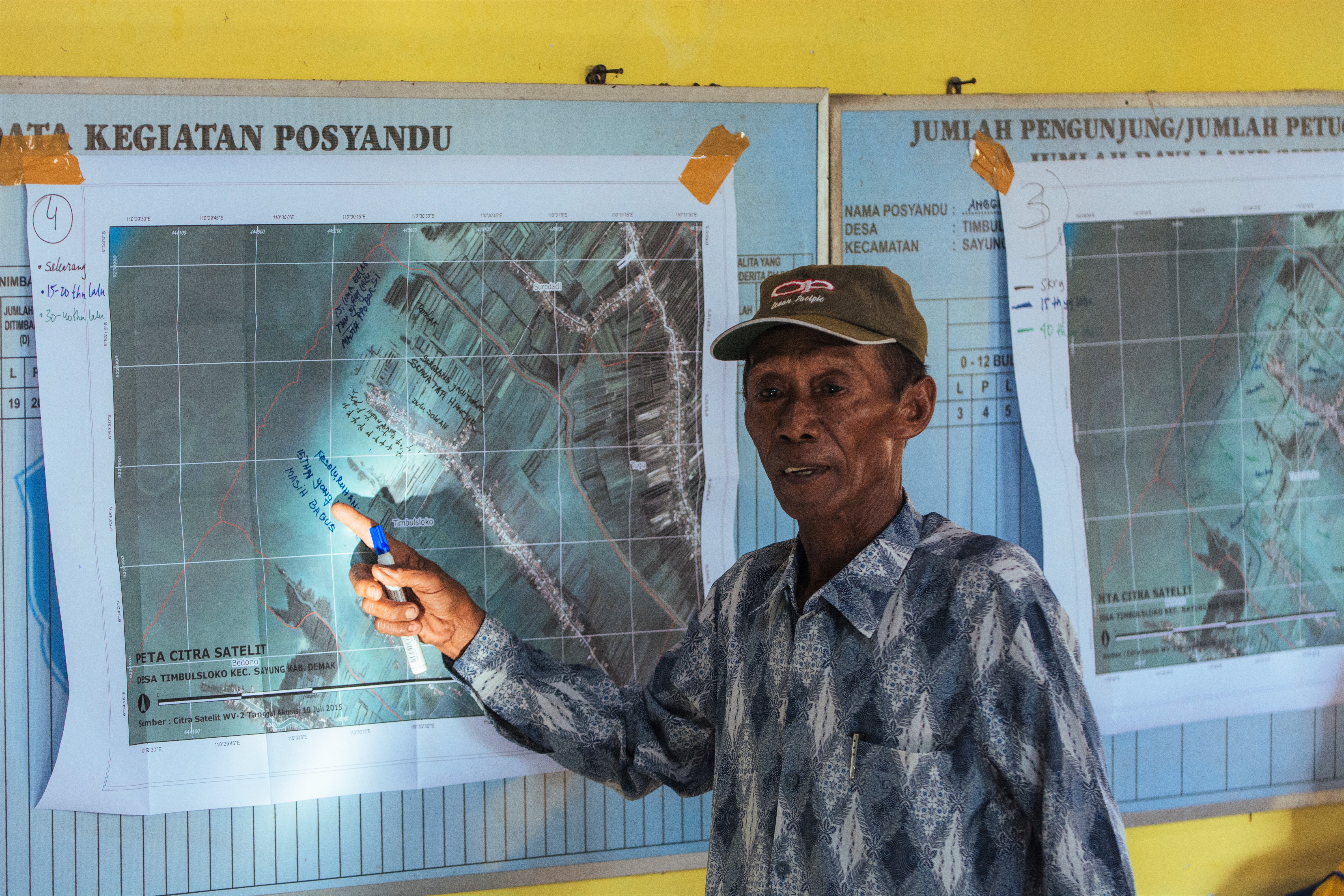

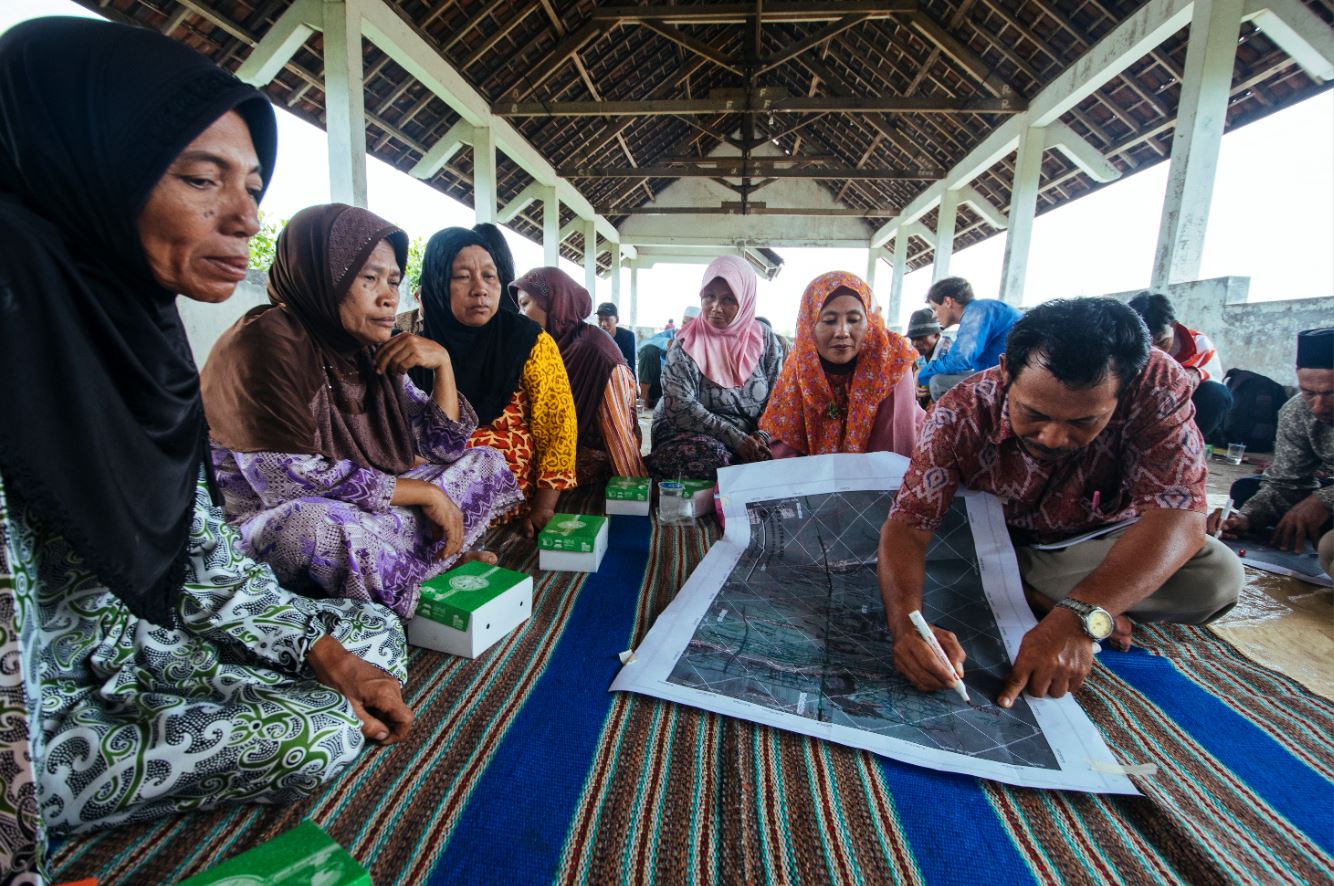
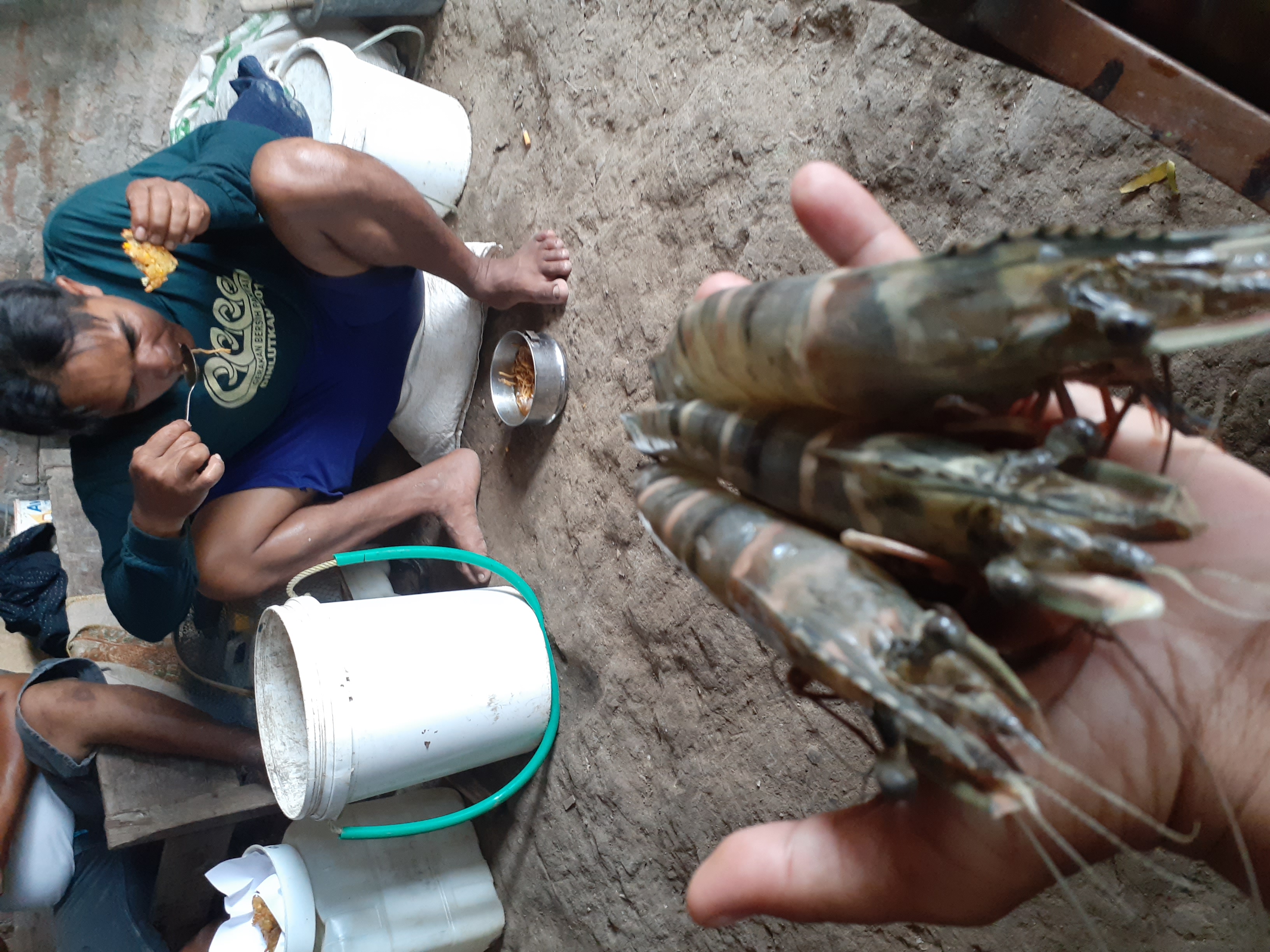
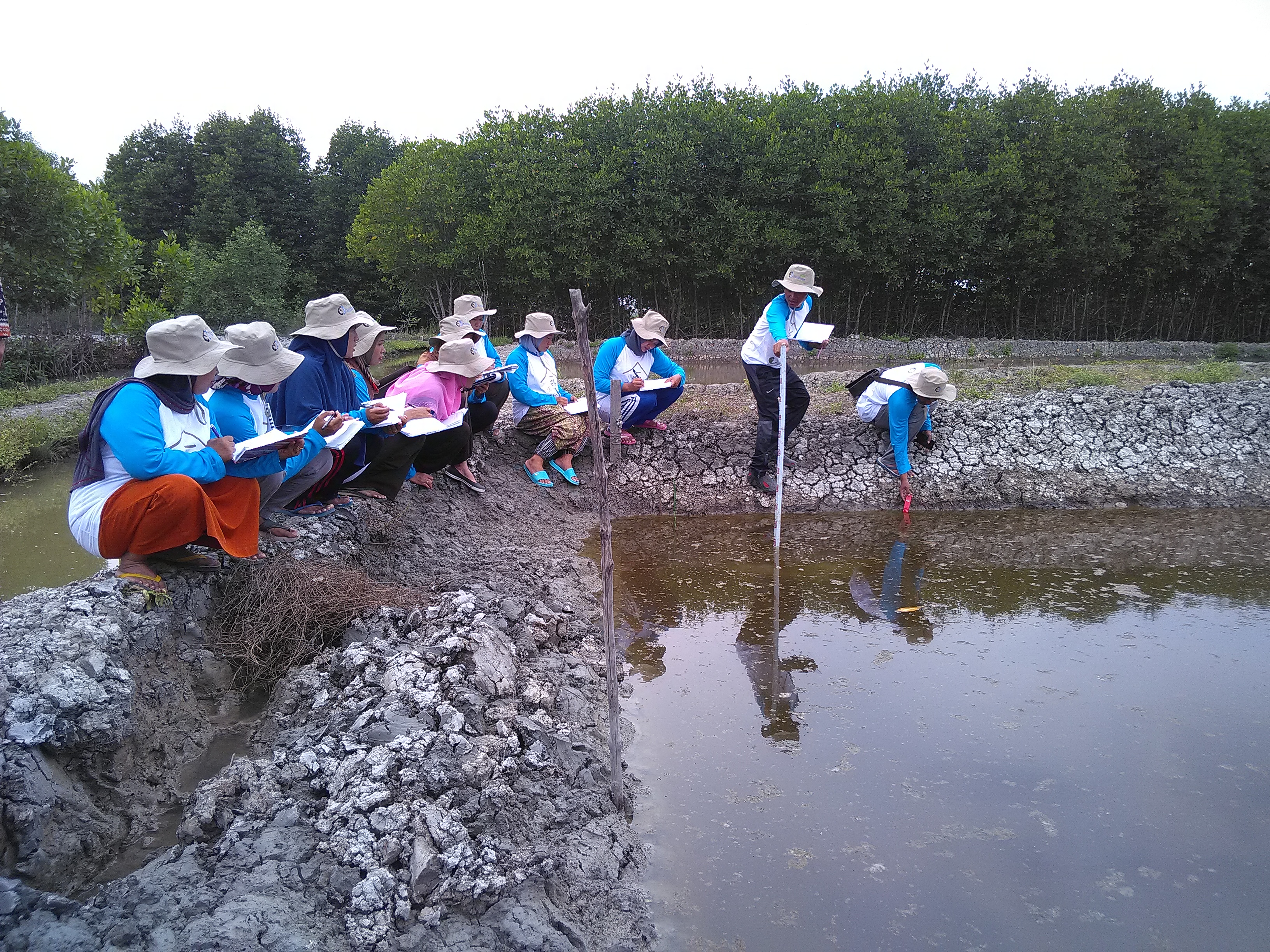
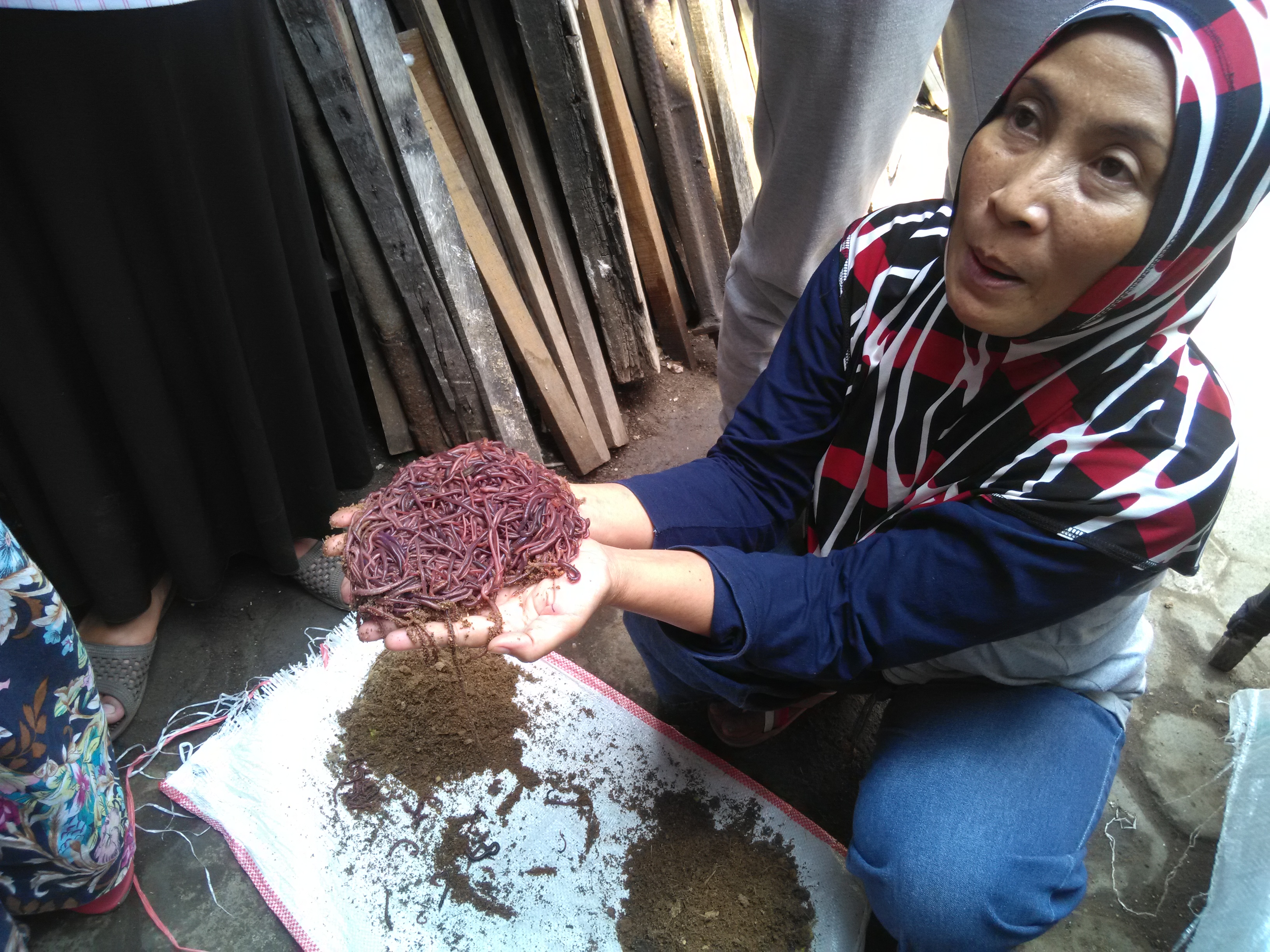
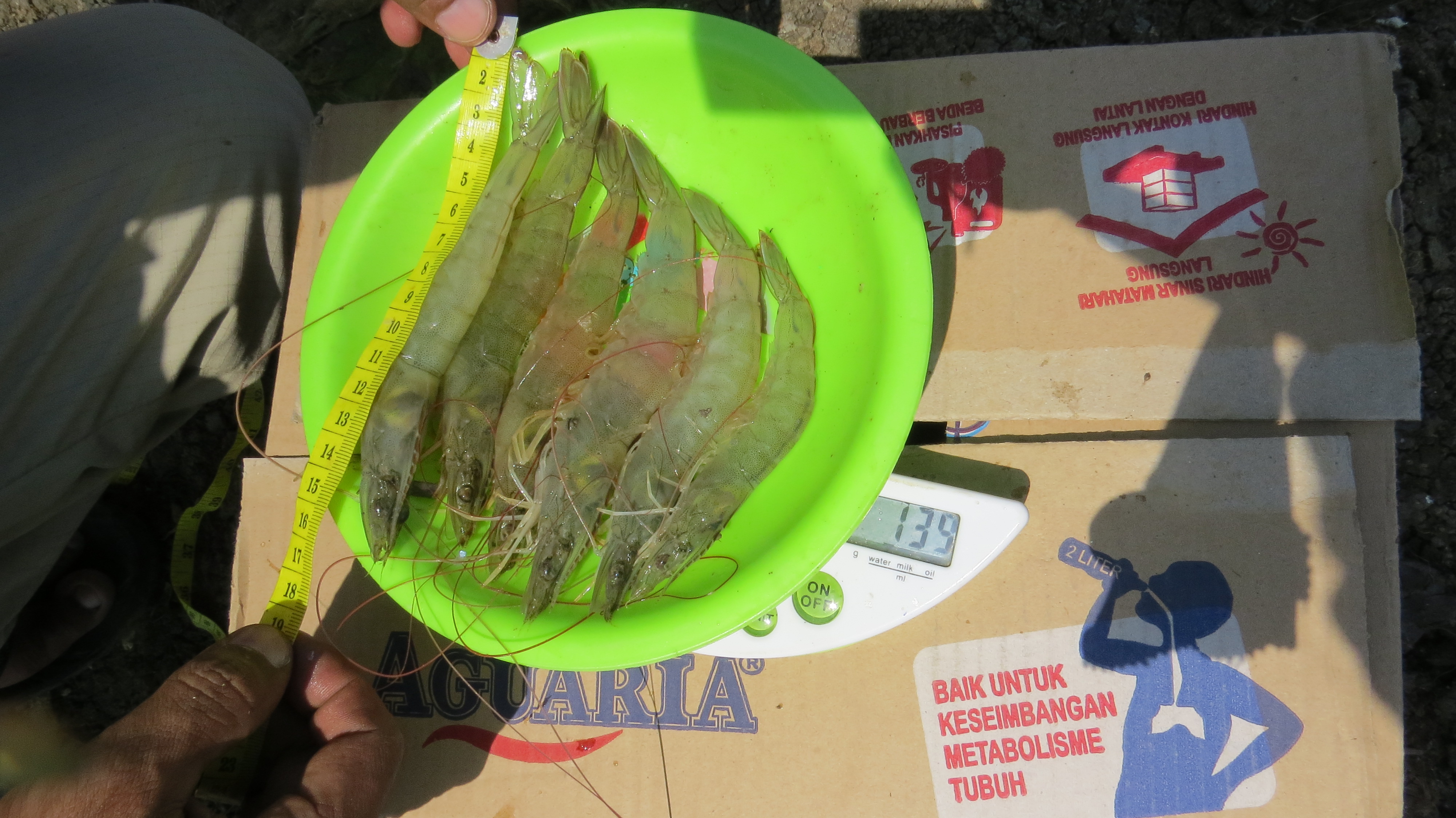
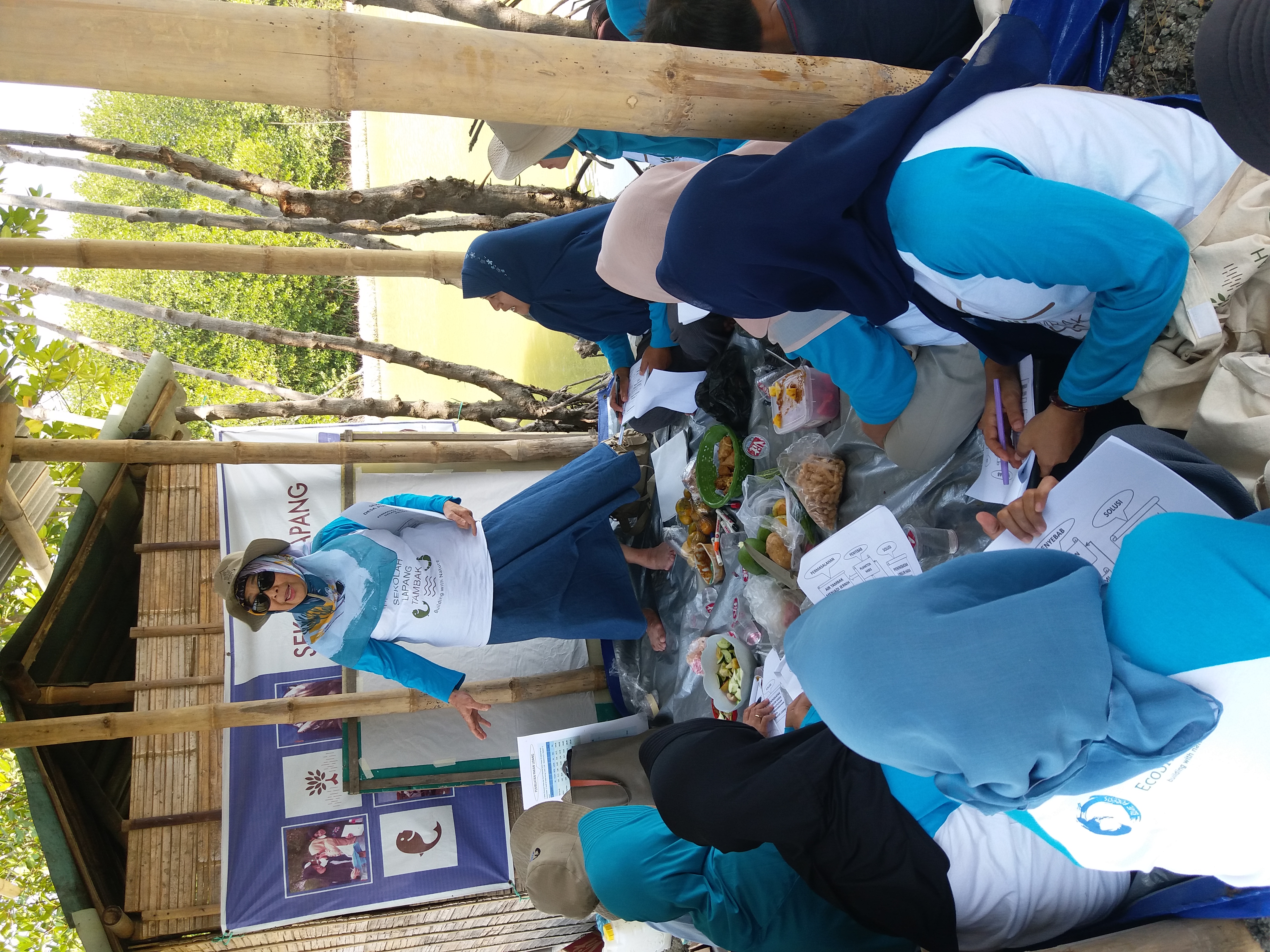
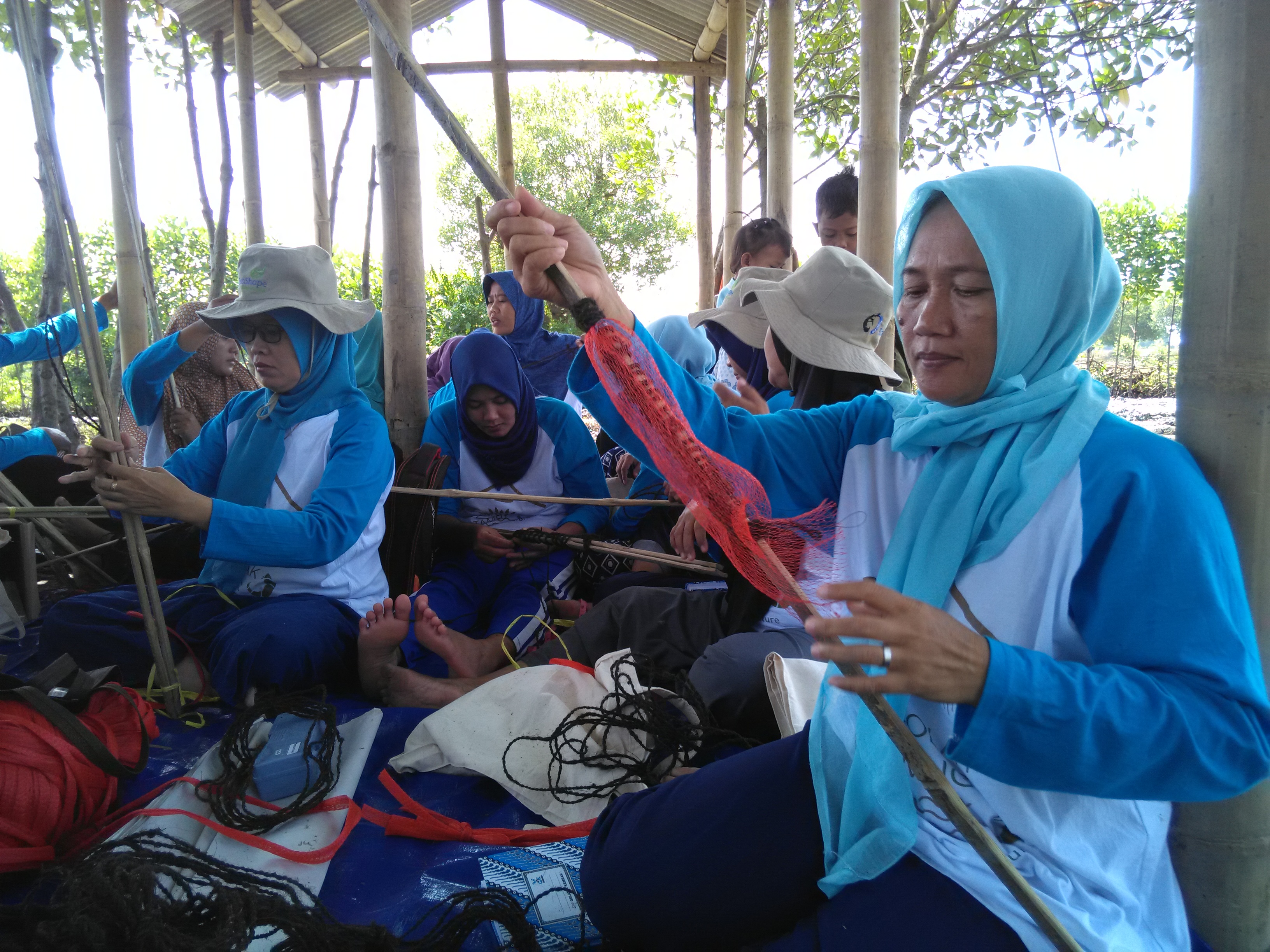
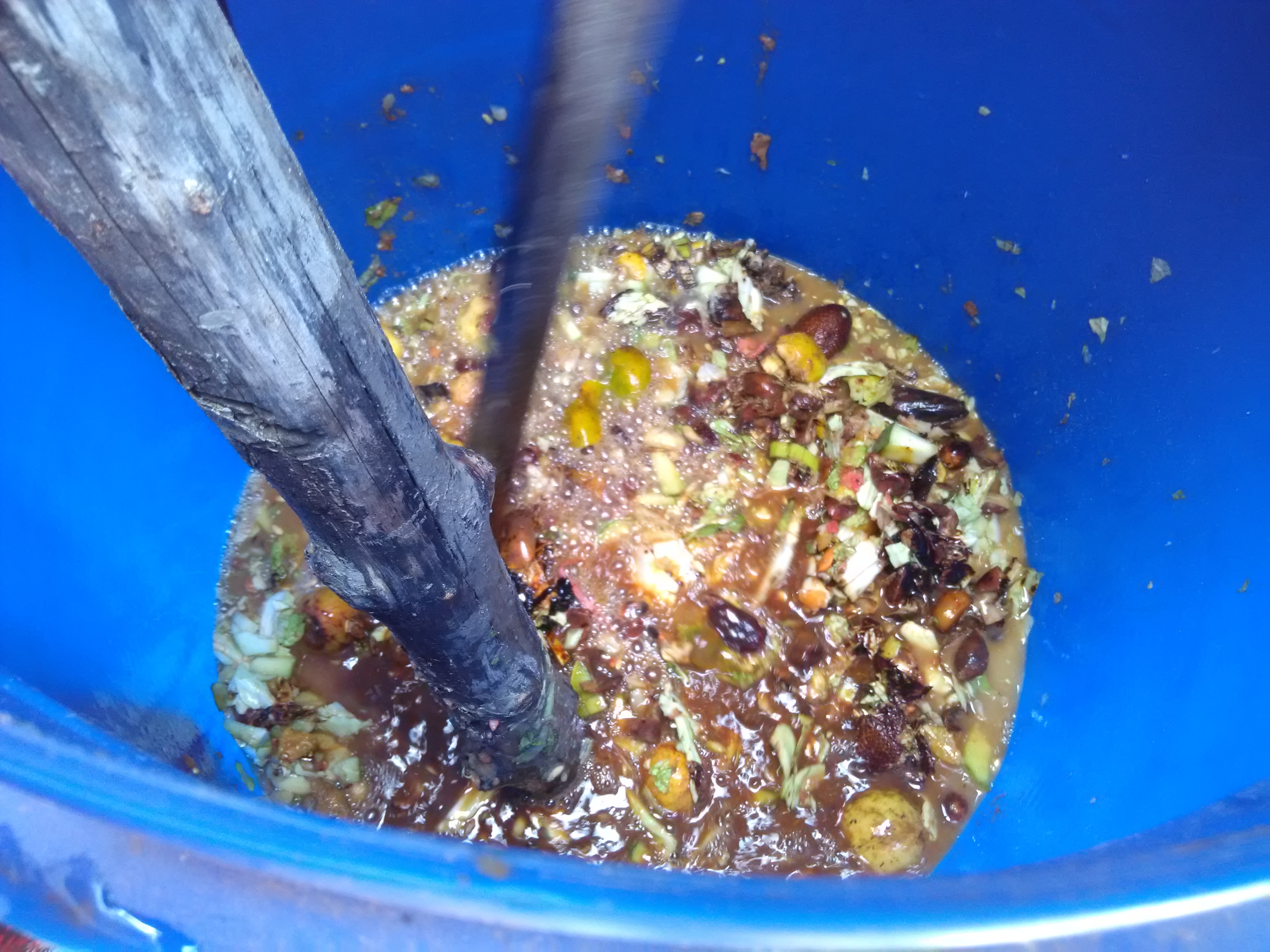
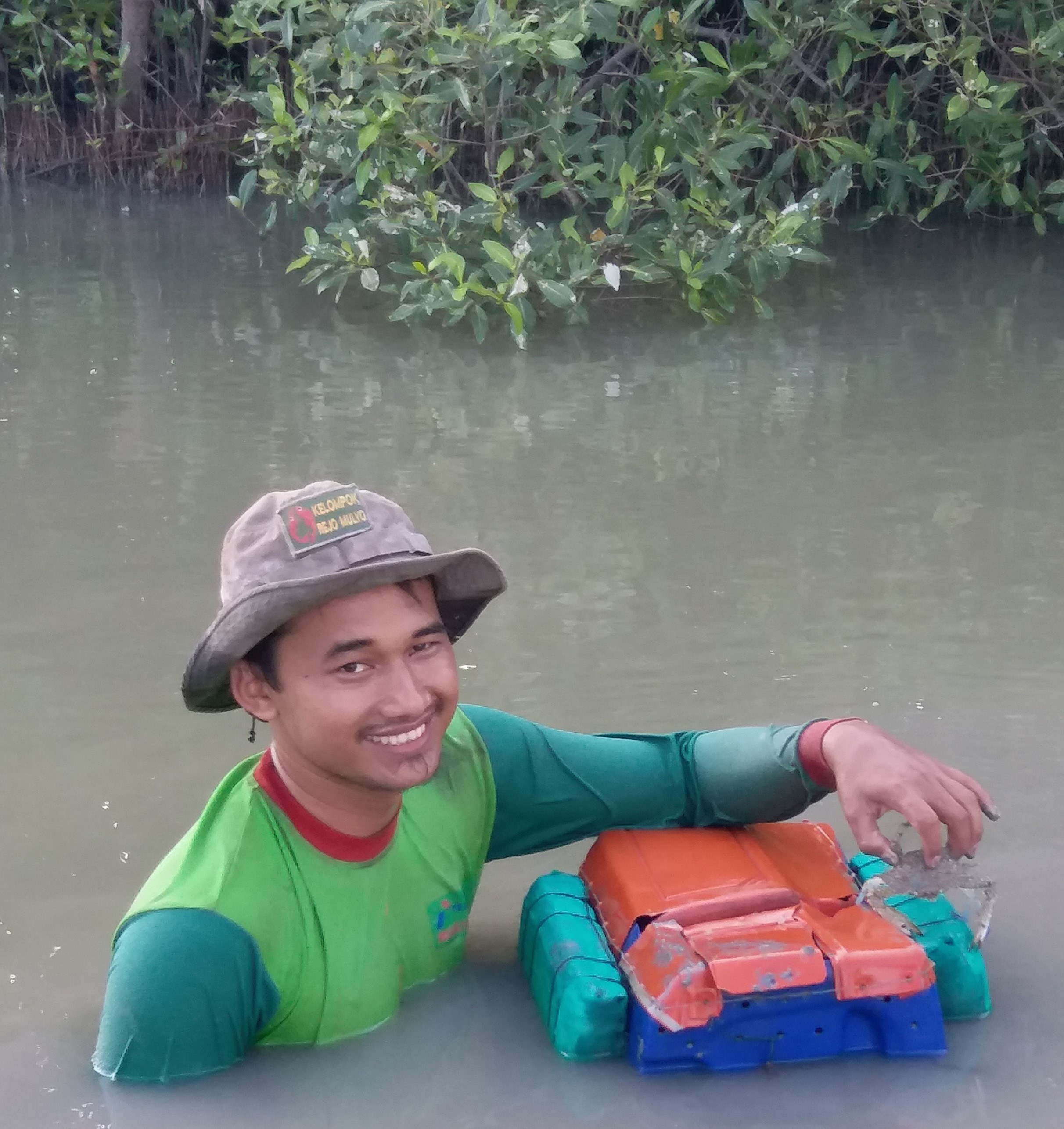
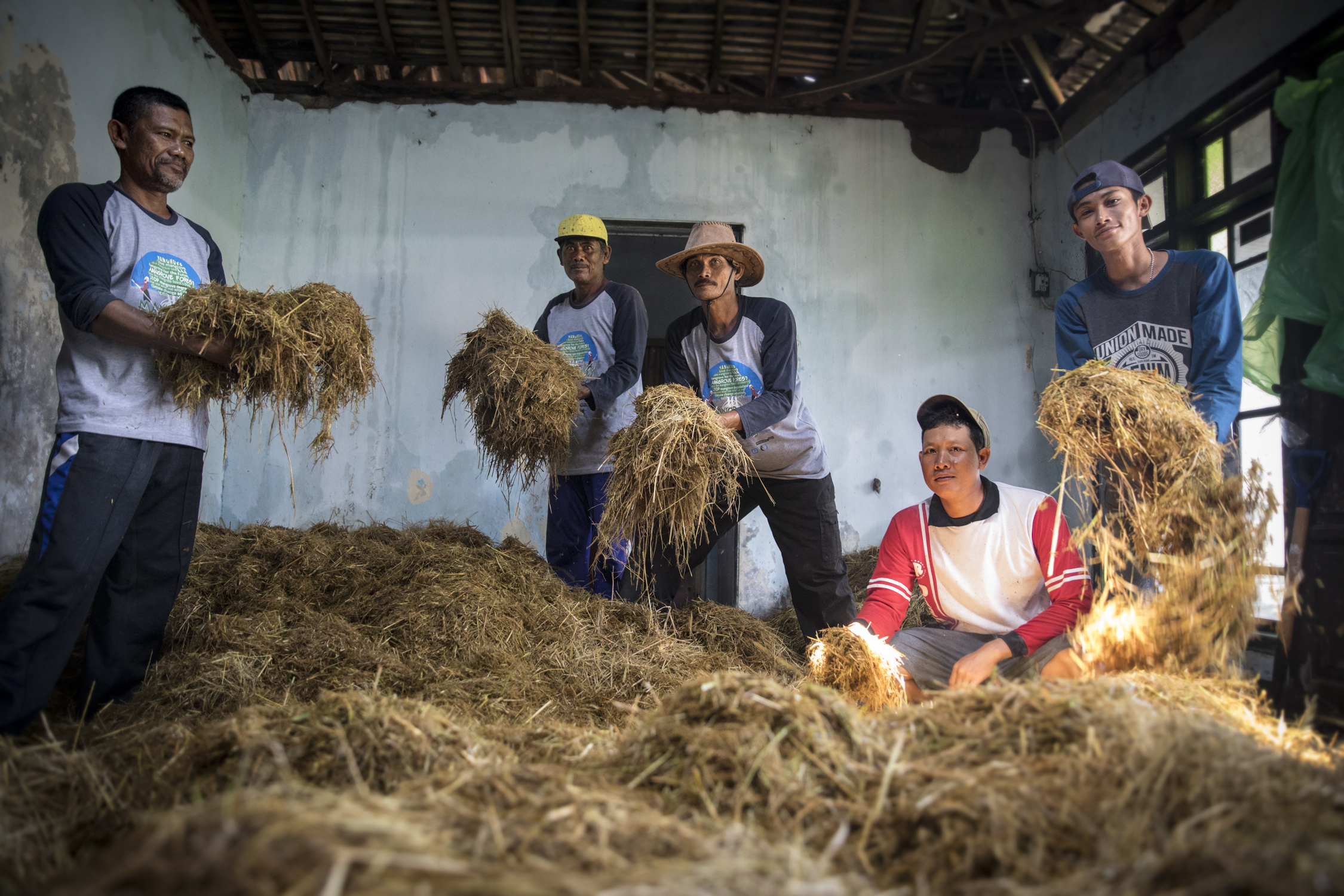
Most aquaculture farmers in Indonesia achieve low yields or benefits due to insufficient training, poor practices and the use of chemicals and antibiotics that disturb the ecological balance. CFS is a learning process that builds the capacity of local small-scale pond farmers and trains small groups on good practices. During one production cycle (12-16 sessions), farmers learn pond ecology, pond management using low external input sustainable aquaculture (LEISA), and the ecology of coastal waters, including the functions of mangrove greenbelts (raising awareness for mangrove rehabilitation). Farmers study the agro-ecosystem, design aquaculture production systems, observe demonstration ponds, synthesize data, and debate with colleagues. They learn to make liquid and dry compost to cure, fertilise and manage the soil and water of their ponds. Finally, they make informed decisions on next steps of pond management. Through this process participants can determine the new practice(s) that are practical for them to apply straight away. Farmers also acquire more confidence in decision making and public speaking. In this project, after finishing the curricula, alumni continued to engage in post-field-school activities (such as on AMA and practicing forms of Integrated Multitrophic Shrimp Aquaculture (IMTA).
- BwN Indonesia was the first project to show that disastrous coastal erosion can be reverted with permeable structures, which created trust.
- Resource persons supplemented the curriculum, which incited farmers to experiment further with new techniques and species.
- Pre-and post-testing enabled timely identification and adressing of problems
- A final meeting to identify follow-up activities resulted in the creation of independent platforms of farmers who continue to experiment and discuss their learnings.
- In Demak, over 80% of the participants adopted LEISA to some extent; and these adopters tripled their gross margins compared to most of the non-adopters. This meant that the cost of the training was recovered within one year, making the CFS one of the most efficient rural training interventions. Moreover, the increased income encouraged efforts to restore mangroves for coastal safety.
- Some of those who didn’t adopt LEISA, were linked to other projects offering free seedlings of shrimp and milkfish on condition to follow project guidelines for aquaculture.
- Recruiting 50% women was a challenge. In its last year, the project’s female trainers recruited participants for two CFS that focused on women, including women among the early adopters as co-facilitators.
- After a CFS training, farmers continue to innovate, e.g., by fattening Blue swimming crab and becoming active in social (learning) networks. The CFS impacts both family and community livelihoods.